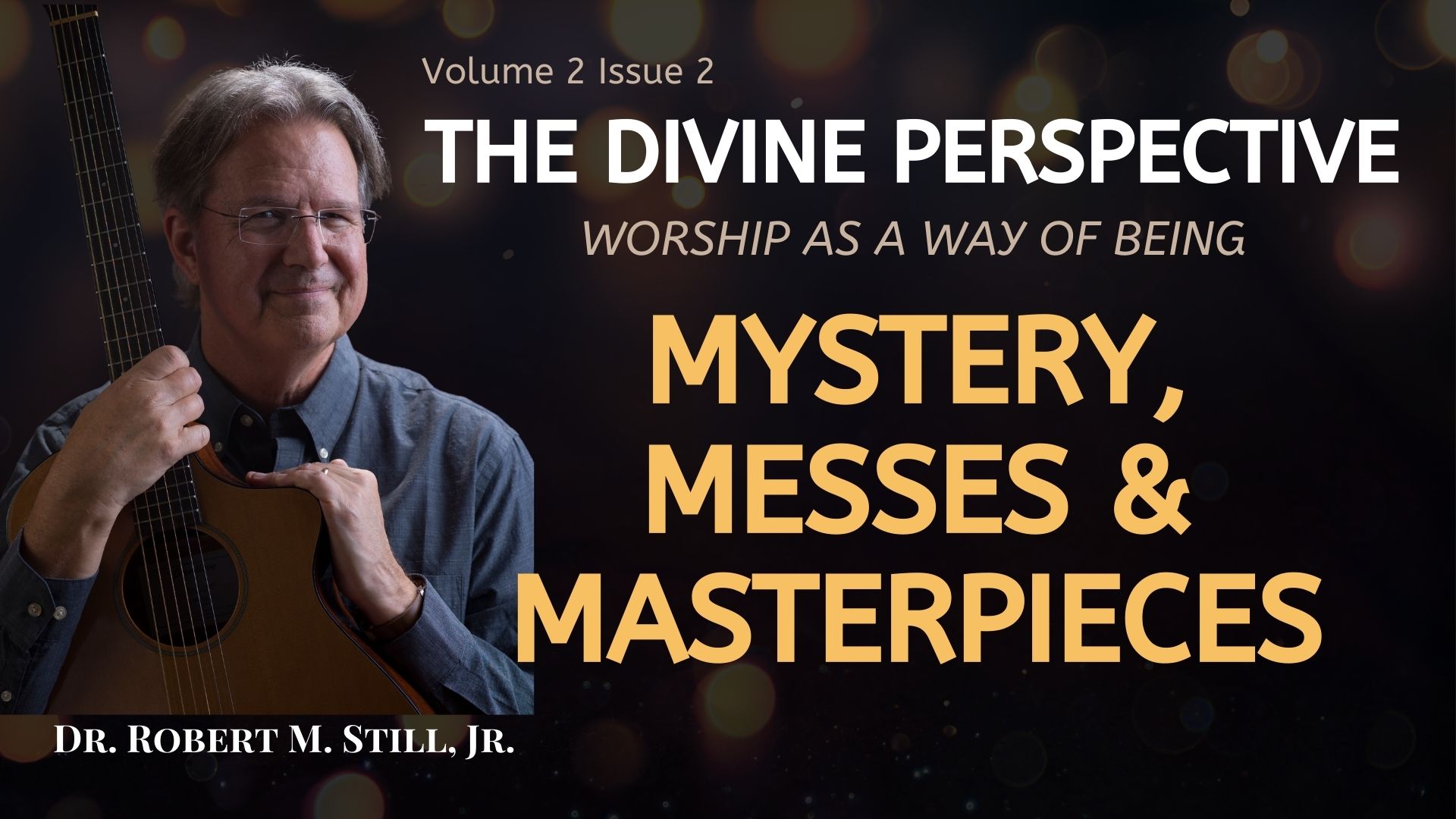Mystery, Messes, & Masterpieces

Introduction
The season of Epiphany offers a unique opportunity to engage the spiritual energy of renewal and new beginnings.[1] Read previous article here [link].
Conceptually, “epiphany” can mean a sudden moment when you intuitively grasp a new insight into reality.
A personal epiphany that I gleaned from reading the first two weeks of the Day by Day Chronological Bible: 365 Day, One Year, Reading Plan (George H. Guthrie) is that the origin stories of the Judea-Christian faith comprise a tapestry of Mystery, Messes & Masterpieces.
Mystery Ongoing
The creation accounts of both Genesis and John are decisive in declaring the existence and supremacy of God. God is what Iain McGilchrist describes as “the ground of being.”[2] There is nothing that has not been created by God, including the laws of nature and science.
Yet, the meta-narrative of God’s story is veiled in mystery and raises unanswerable questions. How did God create order out of chaos? Where did evil come from? Why is it permitted? What does it mean to be humans created in the image of God? The Bible says that God speaks, but how? How do you know God is speaking to you?
These primordial questions remain perpetually relevant, even to this very day. The answers remain a mystery only partially resolved by faith.
The Messes in God’s Story
God’s story is not the progressive unfolding of Divine perfection but a series of epic sagas interlaced with shocking messes. Here are a few examples from my first two weeks of reading the Day by Day Chronological Bible.
- The first offering of worship results in a worship war which ends in murder (Gen 4);
- there are strange intermarriages, and God regrets creating humans (Gen 6);
- Abraham lies about his wife being his sister on two occasions (Gen 12:11-20, Gen 20);
- Lot offers his two daughters to be raped by a mob (Gen 19:6-8),
- later, Lot's daughters scheme to become impregnated by their father (Gen 19:20-24);
- the Patriarchs appear to be dysfunctional family systems,
- Rebecca manipulates a complex con job where Esau gets the short end of the stick and Jacob must run for his life (Genesis 27-29).
God’s story is messy!
Or rather, the story of humanity relating with God and one another is full of strange, morally bewildering interactions.
Of course, there is often more to the story than meets the eye, and that exploration is valuable to learn from.
When a passage is perplexing, there are two helpful questions to ask.
1. Why is this story in the Bible?
2. What does this tell us about God?
Masterpieces from Messes
God’s ways are full of mystery. God transforms messes into masterpieces —that is what He does, how he creates, and how he manifests supernatural love in the natural world.
God speaks and reveals. God promises a faithful commitment to Abraham, a promise of kindness extended to all who enter the covenantal relationship. He says, “I will be their God” (Gen 17:1).
Paul further explains in Romans 1:5 that through Christ, the mystery of God’s kindness is poured out through Christ to all undeserving sinners.
God promises His presence, ensuring, “I am with you and will watch over you wherever you go . . . for I will not leave you until I have done what I have promised you” (Gen 28:15).
The epiphany I realized when encountering these origin stories is that God’s love and power is the same now as it has been from the beginning. God can still transform my messy story today.
God’s Story for Us
God’s story is for you and me; it is for all of us. The Bible is not an ordinary book; it’s a masterpiece of God’s creative love. There is spiritual power when we abide by the truth of God’s word and ways. God, in His transformative nature, will turn your mess into His masterpiece.
“Mess into a masterpiece” isn’t a cliché; it’s God’s creative process.
Embracing the Divine Perspective
My prayer for you, dear friend. May you gain the perspective of heaven—The Divine Perspective. Let it shift and empower your mental and emotional state as you become His new creation, re-created in Christ Jesus to do good works (2 Cor 5:17, Eph 2:10).
By faith, He will make your mess His masterpiece. Amen!
STAY CONNECTED: Sign up for The Divine Perspective, my newsletter that synergizes spirituality, theology, creativity, and personal development from an artist and academic who envisions worship as a way of being.
Thank you for subscribing!
Have a great day!
This series builds upon my research at the Robert E. Webber Institute for Worship Studies. You can read “Epiphany Spirituality: A Light Of Revelation” here: https://robstill.academia.edu/research
1) Traditionally the Biblical texts for Epiphany focus on The Visit of the Magi (Matthew 2:1-12), The Baptism of Jesus (Matthew 3:13-17, Mark 1:9-11, Luke 2:21-22), and The Miracle at Cana, where Jesus Changes Water into Wine (John 2:1-11).
2) In his book The Matter With Things, Iain McGilchrist describes "the ground of being" as a mysterious phenomenon beyond reductionistic rationalization.

